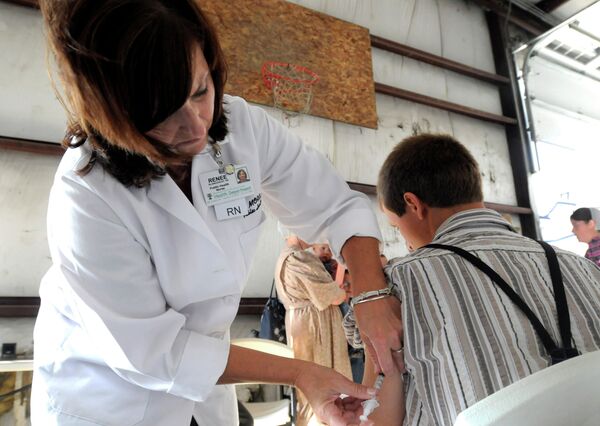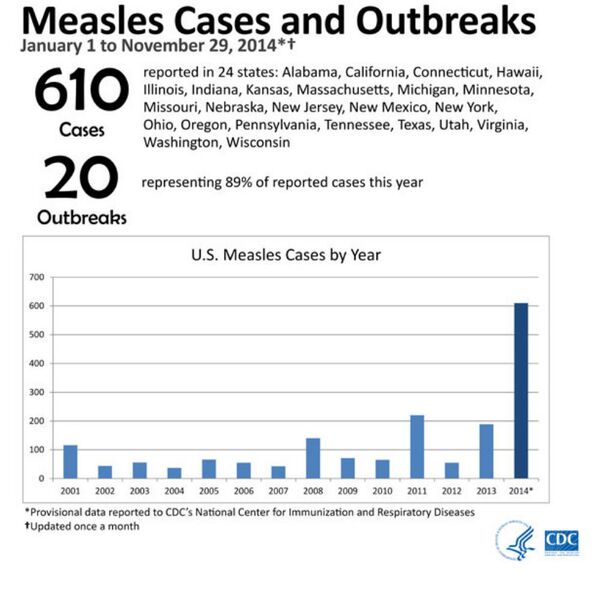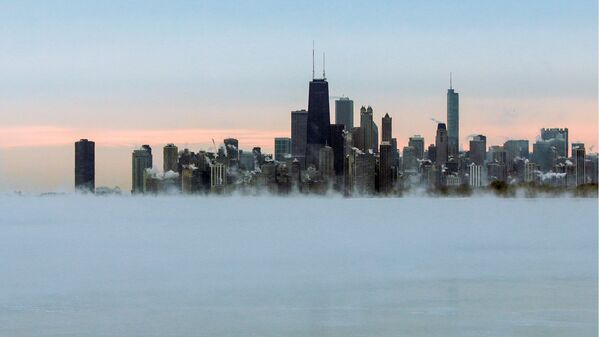The highly contagious virus had, until recently, been considered eliminated in the United States, and with 87 now confirmed cases, health officials are responding by hammering home the importance of getting kids vaccinated.
“This case in Illinois is a reminder of the importance of immunizations,” said Nirav Shah, the Director of the Illinois Department of Public Health. “Immunizations are vital to protect not only each child, but the community as a whole.”
The case identified in Chicago is said to be an adult, though the person’s name and the exact area of the city they were in was not disclosed. It’s the first case of this year and only the tenth in the last five years in Illinois.

Outbreak Likely Tied to International Tourists
The first measles patients were diagnosed in California in late December, and health officials connected the outbreak to two Disneyland parks, where it’s possible that international visitors may have brought the virus with them.
Measles is highly contagious and people may carry the disease for a few days before developing symptoms, according to the Centers for Disease Control and Prevention. Secondary outbreaks are therefore common, and related cases have popped up in Arizona, Utah, Washington, Colorado, Oregon, Nebraska and Mexico.
Last year the U.S. saw the largest number of confirmed measles cases since 1994, reaching 288 in the first half of the year, the CDC reported. Nearly all of these cases have been associated with international travel by unvaccinated people.
Measles typically starts with fever, runny nose, red eyes and a cough, with a red rash appearing after a few days that starts at the face and moves downwards on the body.
Unvaccinated at Home, Unprotected from Outbreaks Abroad
The alarming reappearance of a disease thought all but eliminated in the United States began in 2008. The CDC connected that outbreak to a drop in vaccination rates, and health officials have started to take aim at “anti-vaccination” campaigns.

Subsequent appearances of the virus were also tied to outbreaks abroad — in the Philippines in 2014 and in France in 2011 for example. But any drop in U.S. immunization rates makes populations more vulnerable if exposed to an infected visitor.
Of the initial Disneyland cases, “28 (55%) were unvaccinated, 17 (31%) had unknown vaccination status, and 6 (12%) were vaccinated,” according to a CDC health advisory, issued January 23, when 52 cases had been identified.
One jab of the measles vaccine is 95% effective, with a second (recommended) jab later in adulthood bringing effectiveness to 99%.
For measles, and most infectious diseases, herd immunity — when a population is considered protected against outbreaks — is reached when about 95% of the population is immunized. In California, where the most recent outbreak began, immunization rates among the state’s children in 2014 were at 90.4%, well below the herd immunity threshold.
Taking on “Anti-vaxxers”
Though that was a slight uptick from 90.2% the previous year, health officials are still on a crusade to improve those numbers, which, to some extent, means taking on anti-vaccination campaigners, who believe that there are dangerous side effects such as autism to childhood vaccines.
“A small but very vocal minority is perpetuating this myth (the danger from vaccines), and we have to stop accommodating them,” John Swatzburg of the UC Berkeley School of Public Health told California Magazine. “As with climate change, there is no legitimate debate. Both climate change and the efficacy and safety of vaccinations are as real as the sun rising.”
California even introduced a bill — AB 2109 - that would require a signed exemption from a doctor confirming that a parent had received medical counselling about vaccination before they could exempt their child from immunizations.
The bill passed and Gov. Jerry Brown signed it into law. However, critics worried that his signing message watered it down by allowing people to claim an exemption on religious grounds without receiving medical counselling.




